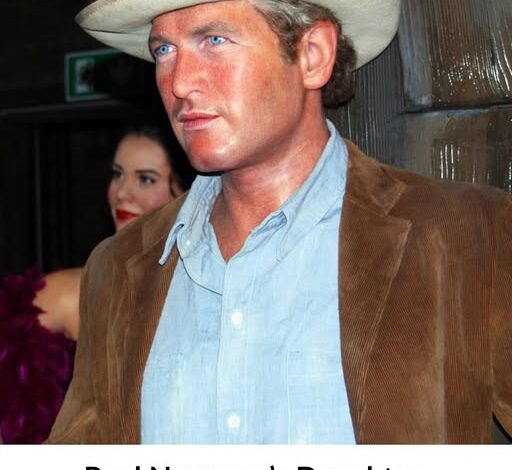
Paul Newmans Daughter Passed Away At 72!
Susan Kendall Newman, the eldest daughter of Hollywood legend Paul Newman and his first wife Jackie Witte, passed away at 72, leaving behind a legacy defined by creativity, compassion, and quiet strength. According to The New York Times, she died on August 2, 2025, from complications related to chronic health conditions.
Born in 1952 in New York City, Susan grew up surrounded by the glamour of her father’s rising fame, but she was never content to simply live in his shadow. While the Newman name carried weight in Hollywood, Susan’s career was driven by substance and independence rather than celebrity. She charted her own path in both film and philanthropy, combining artistry with advocacy throughout her life.
In the 1970s and 1980s, Susan appeared in a string of television movies and independent films, including Slap Shot, A Wedding, and I Want to Keep My Baby! While her father’s work leaned toward iconic cinematic storytelling, Susan’s focus was more intimate and human. She gravitated toward projects that examined the emotional complexity of real life—family, morality, and identity. Her understated screen presence was often described as authentic, carrying the quiet confidence of someone more interested in truth than stardom.
But acting was only part of her story. As the years went on, Susan found her true voice behind the camera. She directed and produced several documentaries and socially conscious programs, using media as a platform to explore issues she cared deeply about. Her work tackled topics ranging from women’s rights and addiction recovery to community revitalization and public education.
Like her father, Susan’s sense of responsibility extended far beyond the screen. Deeply influenced by Paul Newman’s humanitarian example, she became an active philanthropist and advocate for social justice. She worked with organizations addressing child welfare, homelessness, and addiction rehabilitation, and she served on multiple nonprofit boards dedicated to arts education and community empowerment. Those who worked alongside her often described her as unpretentious but fiercely committed—a woman who showed up, listened, and stayed until the work was done.
While her upbringing connected her to Hollywood’s elite, Susan preferred to keep a low profile. Fame held little interest for her; meaning did. She often said her father’s real legacy wasn’t his acting career, but his moral compass—his belief that those with privilege carry an obligation to give back. In that spirit, she quietly raised funds for youth mentorship programs, spearheaded art therapy initiatives for recovering addicts, and lent her name to charitable efforts without ever seeking credit.
In her later years, Susan shifted her attention almost entirely to nonprofit work. She collaborated with public health organizations to raise awareness about addiction recovery and mental wellness—issues close to her family’s history. She also worked on campaigns promoting accessible education for underserved communities, emphasizing creativity as a vital part of emotional and intellectual development.
Despite her accomplishments, Susan remained remarkably grounded. Friends recall her wit, her humility, and her insistence on focusing on solutions rather than problems. To those who knew her personally, she wasn’t “Paul Newman’s daughter.” She was simply Susan—a deeply thoughtful woman who valued purpose over prestige and substance over spectacle.
Her family described her as both introspective and quietly fearless. “She lived with conviction,” one family friend said. “She believed in doing good without the need to announce it.”
Susan’s passing marks the loss of more than just a member of one of America’s most iconic families—it closes a chapter of the Newman legacy defined by compassion and conscience. While Paul Newman built a philanthropic empire through ventures like Newman’s Own, Susan embodied those same ideals in smaller, more personal ways. She dedicated her energy to people and projects often overlooked by the spotlight, leaving behind a lasting impact on the communities she served.
In an era when fame often overshadows purpose, Susan Kendall Newman lived differently. She used her platform quietly, intentionally, and with empathy. She was an artist who saw the world’s pain and tried to ease it—not through headlines, but through human connection.
She is survived by extended family members, countless colleagues, and the many people whose lives she touched through her work. For those who admired her, her legacy endures not in the applause of audiences but in the enduring ripple of her kindness.
In her own words, once spoken during a documentary interview years ago:
“It’s not about how many people know your name. It’s about how many people you’ve helped to stand a little taller.”
Susan Kendall Newman stood tall—and helped others do the same.




